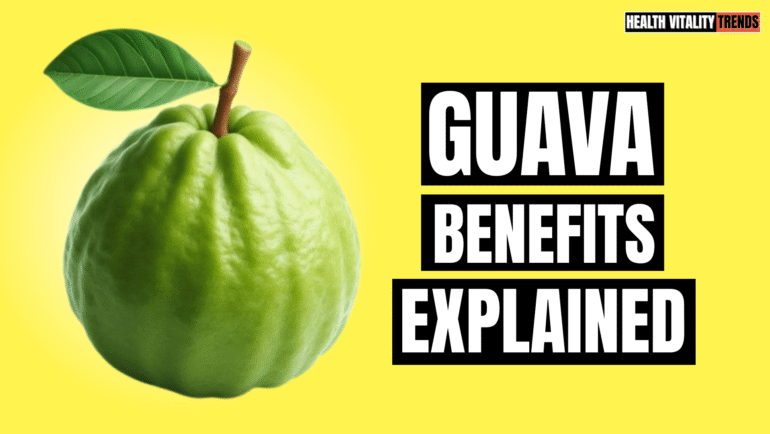
PINEAPPLE: Enzyme-Rich Fruit for Inflammation & Detoxification
Bright, tangy, and refreshingly sweet, the Pineapple is a tropical fruit loved for its unique flavor and impressive health benefits.
It is packed with vitamin C, manganese, and powerful enzymes, and has been used both as a food and a natural medicinal remedy for a long period of time.
From aiding with digestion to supporting immunity and bone health, pineapple is more than just a summer treat. It’s a nutrient-rich fruit worth adding to your diet year-round.
What is Pineapple?
Pineapple (Ananas comosus)[1] is a tropical fruit native to South America, particularly Paraguay and Brazil, but it is now widely grown in Asia, Africa, and the Caribbean.
Belonging to the bromeliad family, it is actually a collection of berries fused around a central core.
Historically, pineapples were considered a luxury fruit in Europe, as they symbolized hospitality and wealth.
Today, they are enjoyed either fresh cut, juiced, canned, or used as an ingredient in both sweet and savory dishes worldwide.

What Does Pineapple Taste Like?
Pineapple has a bold, tropical flavor that balances sweetness with tartness.
A ripe pineapple (with rich golden color) tastes juicy, sweet, and slightly tangy, while unripe pineapples (with predominantly green color) can taste sour and may irritate the mouth due to higher levels of bromelain (a digestive enzyme).
Its refreshing taste makes it a favorite in fruit salads, juices, smoothies, and even as a pizza topping—a debate that continues across cultures and nations!
Pineapple Nutrition Facts
Here’s the nutritional breakdown of 1 cup of raw pineapple chunks (165 g), based on USDA[2] data:
| Nutrient | Amount |
|---|---|
| Calories | 82 kcal |
| Carbohydrates | 21.6 g |
| Dietary Fiber | 2.3 g |
| Sugars | 16.3 g |
| Protein | 0.9 g |
| Fat | 0.2 g |
| Vitamin C | 79 mg (88% DV) |
| Manganese | 1.5 mg (76% DV) |
| Vitamin B6 | 0.2 mg (11% DV) |
| Copper | 0.2 mg (9% DV) |
| Potassium | 180 mg (5% DV) |
| Water Content | ~86% |
Explanation: Pineapple is low in calories but rich in vitamin C and manganese—two nutrients essential for immunity, collagen production, and bone health. It is also one of the only food sources of bromelain, an enzyme studied for its anti-inflammatory and digestive properties, popular among athletes and sports players.
Health Benefits of Pineapple
1. Aids Digestion – Bromelain helps break down proteins and may reduce bloating, indigestion, and constipation (PubMed)[3].
2. Supports Immunity – High vitamin C content strengthens the immune system and protects against infections (ResearchGate)[4].
3. Promotes Bone and Joint Health – Manganese and antioxidants support bone density and may reduce joint pain caused by inflammation.
4. Speeds Recovery – Studies suggest bromelain may help reduce swelling, bruising, and healing time after surgery or intense exercise (ResearchGate)[5].
5. Protects Against Oxidative Stress – Rich in antioxidants like vitamin C, beta-carotene, and flavonoids, pineapple helps combat free radical damage.
6. May Improve Heart Health – Fiber, potassium, and antioxidants contribute to lower blood pressure and better cardiovascular function (NIH)[6].
How to Eat Pineapple
- Fresh: Slice into rings or chunks for quick snack bites.
- Smoothies & Juices: Blend pineapple chunks with mango, orange, or coconut water for a tropical drink.
- Cooking: Use in stir-fries, grilled dishes, or paired with chicken, pork, and seafood.
- Desserts: Added to cakes, puddings, and fruit salads.
- Cultural Use: In Hawaiian cuisine, pineapple is a signature ingredient in both sweet and savory dishes, symbolizing warmth and hospitality.
Fun Fact: In colonial America, hosts would display pineapples at gatherings as a sign of wealth and welcome, leading to the fruit becoming a global symbol of hospitality.
How to Store Pineapple to Keep It Fresh
- Avoid Overripening: Store away from ethylene-producing fruits like bananas.
- Whole Pineapple: Store at room temperature for 1–2 days, then refrigerate.
- Cut Pineapple: Keep in an airtight container in the fridge for up to 4–5 days.
- Freezing: Freeze chunks for smoothies or desserts. Lasting up to 6 months.

Possible Side Effects and Precautions
Side Effects
- Mouth Irritation – Bromelain and natural acidity may cause temporary tingling or burning in the mouth.
- Digestive Issues – Overeating pineapple can lead to diarrhea or stomach upset due to high fiber and enzyme content.
- Allergic Reactions – Rarely, some people may experience swelling, rashes, or latex-fruit allergy cross-reactions.
- Blood Sugar Spike – Canned or juiced pineapple with added sugar may raise blood glucose levels.
Precautions
- Dental Health: The acidity can erode enamel; rinse your mouth after eating.
- Diabetics: Opt for fresh pineapple and practice portion control.
- Pregnant Women: Eating moderate amounts is safe, but avoid excessive intake to reduce the risk of acidity or digestive upset.
- People on Medications: Bromelain in the fruit may react with blood thinners, antibiotics, or sedatives. Consult a doctor if you are allowed to consume pineapple with your prescribed medication.
Fruits Similar to Pineapple
- Mango – Sweet tropical fruit with similar vitamin C benefits.
- Papaya – Contains digestive enzymes like papain, similar to bromelain.
- Guava – High in vitamin C and tropical in flavor.
- Jackfruit – Large tropical fruit with a sweet, fibrous texture.
Common FAQs About Pineapple
Q1: Can I eat pineapple every day?
Yes. Eating a cup of fresh pineapple daily is safe for most people and provides essential nutrients.
Q2: Is pineapple good for weight loss?
Yes. Pineapple is low in calories, high in water, and contains fiber that helps promote satiety.
Q3: Can pineapple help with colds?
Yes. Vitamin C and bromelain may help reduce cold symptoms and improve recovery.
Q4: Is pineapple safe for kids?
Yes, in moderation. For young children, cut into small pieces to avoid choking and reduce acidity-related irritation.
Conclusion
Pineapple is more than a tropical delight—it’s a nutrient powerhouse with benefits ranging from better digestion to stronger immunity and bone health. Its refreshing taste and versatility make it easy to add to both sweet and savory recipes. Whether eaten fresh, blended into smoothies, or grilled with meats, pineapple is a delicious way to support your health naturally.
References
- https://en.wikipedia.org/wiki/Pineapple
- https://snaped.fns.usda.gov/resources/nutrition-education-materials/seasonal-produce-guide/pineapples
- https://pmc.ncbi.nlm.nih.gov/articles/PMC8198275/#B3-molecules-26-03216
- https://www.researchgate.net/publication/306017037_Benefits_and_uses_of_pineapple
- https://www.researchgate.net/publication/355848685_The_effect_of_using_pineapple_fresh_juice_to_improve_post-surgical_pain_ecchymosis_and_swelling_in_maxillofacial_region
- https://pmc.ncbi.nlm.nih.gov/articles/PMC8028712/#Sec20




